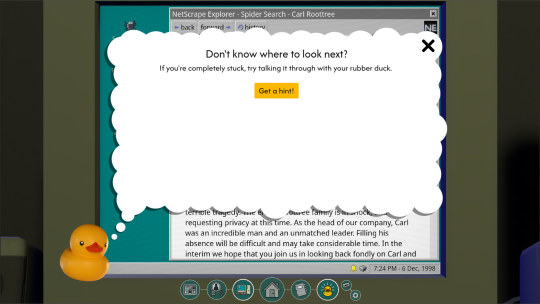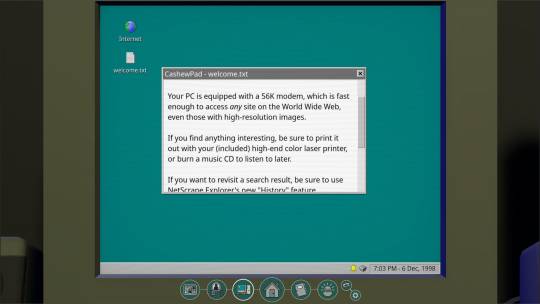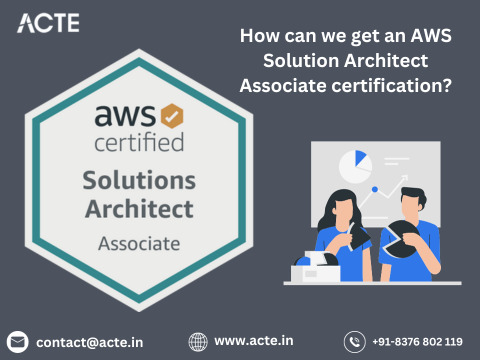#computer system validation course online
Explore tagged Tumblr posts
Text
Computer System Validation (CSV) Certification
Are you looking to advance your professional career in pharmaceutical or life sciences technical compliance? Our Computer System Validation Certification is designed for people aiming to apply GxP regulations, 21 CFR Part 11, and validation documentation essentials to real work scenarios. At Pharma Connections, we try to bridge the gap between industry and academia, focusing on hands-on learning, real cases, and expert mentoring.
If you are working on the QA side, IT, or regulatory, the course will equip you to handle audits properly, ensure data integrity, and remain compliant. Practical yet flexible, this course equips you with skills for validation sought after by all top employers. Get started with our course to secure a bright future in pharma.
#computer system validation certification#computer system validation training#computer system validation course#csv certification#computer system validation course online
0 notes
Text

Computer System Validation | Pharma Connections
Boost your expertise with our Online Computer System Validation Training Courses! Designed for both beginners and experienced professionals, our course includes assessments and certification to enhance your skills in CSV for the pharmaceutical industry. Enroll now and advance your career in compliance and validation!
0 notes
Text
Pharma Courses Online - Pharma Connections
Unlock your potential in Pharma with Pharma Connections' online courses! Dive into essential topics like CSV, CDM, QMS, and Pharmacovigilance to stay ahead in the dynamic life sciences sector. Enroll now for expert-led training and accelerate your career.
0 notes
Text
I don't like Arch Linux, and let me tell you why.
First, one of the major "selling" points of Arch is that it's light. However, if your computer isn't from, like, 1856, the amount of "bloatware" on something like Mint is insignificant, and there won't be a noticeable difference in performance between that and Arch. If your PC is powered by a potato battery and has a raw chunk of quartz as a processor, then sure, Arch might be for you. But if you're one of those people with 128 gigs of RAM and a 4090, then you have no reason to avoid bloatware like it's the plague. Besides, "bloated" distros are already much lighter than Windows, which is what the average person uses. Second, another major "selling" point is that you'll learn all about your setup. And that's partially true; you'll learn what programs do what, because you installed them all yourself. But after a while, that's done. Anything else you wanna learn, you have to go out of your way to do it, and if you have to go out of your way to learn, you could have probably learned that on PopOS or Mint. And besides, if you really want to learn Linux, using Arch isn't the way to go, studying is. Take a class or go on an online course. That'll teach you more than any OS ever could. Then, there's the whole "you have control over your system" thing. And to that, I say: You're on Linux. Almost every OS gives you control over your system. You can customize Mint as much as you can customize Arch. I would know, I use Mint with i3, and it works great. Super customizable, I don't have to put up with all the struggle that comes with Arch, and I have all the features that come with Mint. It's lovely. That just leaves the cool factor, which is a valid reason to use Arch, but I find it wears off rather quickly. After a certain point, having to tinker isn't cool, it's annoying.
To summarize my last three points: All distros let you tinker, but Arch makes you tinker, and tinkering is much less fun when you have to do it. To conclude this post: I don't see many reasons to use Arch in a personal-use PC, but if you find a reason I haven't listed here, I would love to hear it! And if you're considering using Arch, don't let me stop you. It's not for me, but maybe it's for you. Only one way to find out.
#yes i know about server applications. this post isnt about that.#why did i put so much effort into this no ones gonna see it
17 notes
·
View notes
Text
Door Reviews: The Roottrees are Dead (2025)
Evil Trout is a man I know specifically from one game I played in my youth: Forumwarz. It was released in 2008, and was very much a product of its time. A browser game about being an internet stereotype, it had a decent playerbase for a while. I eventually fell off of it as I became busy with college, but I have fond memories of hanging out with a bunch of other nerds online, making jokes, discovering IRC, doing guild things, and roleplaying on the internet.
Now, he has returned after what, 17 years? He has adapted someone’s entry into a game jam. Jeremy Johnston made The Roottrees are Dead for the 2023 Global Game Jam. I haven’t played this version because of its reliance on AI art, which I do not like on principle. So I’m glad Evil Trout helped make an adaptation with actual art. The two of them together also included a bonus mystery with this game, Roottreemania, which is essentially a sequel of the original mystery. Various quality-of-life improvements were also made.
As far as adaptations go, this one is pretty good. I heard a lot of murmurings on the internet saying that this game scratched that detective game itch. So with me being a fan of such games, I HAD to get it. And now, I’m here to review it!

What’s it about? An airplane crash is reported over the news. In it were the Roottrees, a famous family known for their old candy company. And they just died. A mysterious person now comes to you, requesting that you map the entire family tree of the Roottrees, from their great great grandparents to their current generation. Why this person asks this of you, you do not know, but you DO know that they’ve come to the right person for the job.
STYLE (Gameplay, Graphics, Music)
As a person who is great at mapping genealogies, your job is to identify each and every member of the Roottree family. You have to find a picture of a family member, find their name, and find their profession, slotting these into their right place in the family tree. You find the information you need with your trusty turn of the millenium PC equipped with a cutting edge 56K modem. You search sites, trawl through periodicals, scan online libraries, print evidence, burn CDs of relevant audio, and whatever else you need to complete your job. When you see familiar faces on the evidence, you can click them to add them to your records and slot them into potential entries.
Once you get three (3) Roottrees right, the game automatically locks them in. This act validates your assumptions and reduces the effort you have to make on future guesses. Jeremy Johnston himself cites Return of the Obra Dinn and Her Story as influences, and it shows.
This gameplay makes for a nice experience. It felt like I was clicking through Wikipedia links, finding all the connections, getting lost in the sauce. It’s a uniquely internet experience, hyperfixating into certain topics and clicking every relevant link, and this game manages to replicate it.

The aesthetic of the game feels very Y2K. You have the 56K modem, the burning of CDs, and a lot of the action of the game happens in your computer. There’s also the aesthetic shown by older evidence, a peek into the 70’s and earlier eras. You get to see how each generation differs from the last. It gives character and color to the game.
The music is um… a lot of copyright-free jazz? Which is fine. There are also a few songs that embody some eras, and some are actually relevant to the game as hints. There are also some voiced lines in the game, which surprised me, as I didn’t feel it necessary. I like that they still made the effort for it.
The art is distinctive enough that each person can be identified. I had a bit of trouble with it, but that’s par for the course for detective games like this. I definitely appreciate the devs moving away from AI art.

Of note is also the hint system. You can consult your own rubber ducky for hints that start out light and progress to more obvious hints until fully saying the answer that will help guide you further in your quest to fill the tree. The hint system itself is a reference to rubber duck debugging, and it’s a nice little thing to set up.
The gameplay of this game is the draw, as the devs included a lot of things to make the detectiving be more comfortable to do, like the capacity to highlight some lines, a sort of notebook you can take your own notes in, a History tab within browsers that lets you go back to past sites you visited… it’s a lot of quality of life stuff. And they make it a much tighter experience that had me not wanting to put the game down. High marks for the style!
SUBSTANCE (Story, Characters, Impact)
This game’s story is so fun for an inveterate gossip like me!!!
It’s like you are thrown behind the scenes into a will reading, and now you have to support your patron in finding all the possible people getting a slice of the pie. And now you’re digging your heels finding out all you can about this old money ass family, and you just find out SO MUCH HOT GOSS GUYS, SO MUCH. The stories won’t be out of place in a Filipino teledrama, and that’s why it’s so fun!! I did not expect this kinda story to be in a detective game!!

You get to know more about the lives of each Roottree, and you see that they have different mindsets to things, different ways of coping with the times. It’s nice seeing all these small stories weaving together in this tapestry of a family tree, disparate yet connected together by blood.
The humor in this game is so fun for me. There’s a fair amount of stories parodying some real life people and some real life experiences. I wanna say it’s rather tongue-in-cheek? I found myself laughing a lot.
I liked the story a lot, and I liked how the gameplay let me discover the story bit by bit. It tickles me a lot how this feels like such fresh ground to explore. The case isn’t really a whodunit and more of diving into a mess of a family, and I think more detective games should be fun like that without resorting to be cutesy cozy games. Those games are still fun, I just think there’s a lot more to explore in this genre. Maybe I haven’t explored detective games much, but this game’s topic feels fresh to me. I loved experiencing this game!
VERDICT

This game is FUN. A refinement of the Obra Dinn formula and the Her Story experience, The Roottrees are Dead does a lot of experimentation with how detective games implement their gameplay. The discovery of evidence, the way you ascertain the answers, all of it feels fresh enough to me that I ended up enjoying my time with it. It’s a modern hit for the genre!
DOOR JUDGMENT: A fun Detective Game that pushes the genre forward. Recommended!
4 notes
·
View notes
Text
Mastering Logic: A Comprehensive Guide
Logic is the systematic study of valid reasoning, forming the foundation of disciplines such as mathematics, computer science, and philosophy. By mastering logic, individuals enhance their critical thinking skills, enabling them to construct coherent arguments, identify fallacies, and solve complex problems effectively.
1. Understanding the Basics of Logic
At its core, logic examines the relationship between premises and conclusions, determining whether the former adequately support the latter. This evaluation is crucial in distinguishing valid arguments from invalid ones. The primary types of reasoning in logic include:
Deductive Reasoning: Involves arguments where the truth of the premises guarantees the truth of the conclusion. For example, in the argument "1) All frogs are amphibians; 2) No cats are amphibians; 3) Therefore, no cats are frogs."
Inductive Reasoning: Involves arguments where the premises provide some degree of support for the conclusion but do not guarantee it. For instance, observing that "all observed swans are white" may lead to the inductive conclusion that "all swans are white," though this is not certain.
Abductive Reasoning: Involves forming a conclusion based on the best available explanation for a set of observations. For example, if you find crumbs on the kitchen counter, you might conclude that someone recently ate there.
2. Key Components of Logical Arguments
A well-structured argument comprises several essential elements:
Premises: Statements that provide the foundational support for the argument. They are the starting points from which conclusions are drawn.
Conclusions: Statements that the premises support or imply. In a valid argument, if the premises are true, the conclusion must also be true.
Logical Connectives: Symbols or words such as "and," "or," "not," and "if...then" that connect propositions and help in forming complex statements. For example, the logical connective "and" (denoted as ∧) combines two statements, both of which must be true for the combined statement to be true.
3. Common Logical Fallacies
Recognizing logical fallacies is vital in evaluating the strength of arguments. Common fallacies include:
Ad Hominem: Attacking the person making the argument rather than the argument itself. For example, dismissing a speaker's argument by saying, "You can't trust his opinion on climate change; he's not a scientist."
Straw Man: Misrepresenting an opponent's argument to make it easier to attack. For instance, exaggerating someone's position by stating, "My opponent wants to cut military spending, which means he wants to leave our country defenseless."
Appeal to Ignorance: Claiming something is true because it hasn't been proven false. For example, asserting that "There must be life on other planets because no one has proven that there isn't."
4. Enhancing Logical Skills
To develop proficiency in logic:
Study Formal Logic: Engage with resources that delve into formal systems, such as textbooks or online courses that provide a comprehensive introduction to formal logic.
Practice Critical Thinking: Regularly analyze arguments in various contexts, identifying premises, conclusions, and any potential fallacies.
Engage in Logical Puzzles: Solve puzzles and problems that require logical reasoning to enhance analytical skills.
5. Applications of Logic
Mastery of logic has practical applications across various fields:
Computer Science: Logic forms the basis of programming and algorithm design, enabling the development of efficient and error-free code.
Mathematics: Logical reasoning is essential in proving theorems and solving mathematical problems systematically.
Philosophy: Logic aids in constructing coherent arguments and analyzing philosophical propositions critically.
6. Conclusion
Mastering logic is a transformative skill that enhances critical thinking, problem-solving, and effective communication. By understanding the principles of logical reasoning and applying them diligently, individuals can navigate complex issues with clarity and precision.
Explore More on @nikshahxai
Personal Development & Education
Philosophy, Ethics & Society
Technology & Innovation
Life Sciences & Health
About the Authors
For more information about Nik Shah's digital presence, as well as insights from contributing authors such as Nanthaphon Yingyongsuk, Sean Shah, Gulab Mirchandani, Darshan Shah, Kranti Shah, John DeMinico, Rajeev Chabria, Francis Wesley, Sony Shah, Dilip Mirchandani, Rushil Shah, Nattanai Yingyongsuk, Subun Yingyongsuk, Theeraphat Yingyongsuk, and Saksid Yingyongsuk, click here to explore further.
#xai#nik shah#artificial intelligence#nikhil pankaj shah#nikhil shah#grok#claude#gemini#watson#chatgpt
2 notes
·
View notes
Text
CompTIA Certifications: Your Gateway to IT Success

Introduction
In today's technology-driven world, IT professionals play a crucial role in driving innovation and business growth. To validate their skills and stand out in the competitive job market, many individuals seek industry-recognized certifications. CompTIA certifications have emerged as a popular choice, offering a comprehensive pathway to IT success.
What are CompTIA Certifications?
CompTIA, the Computing Technology Industry Association, is a non-profit trade association that develops and delivers vendor-neutral IT certifications. These certifications are designed to assess an individual's knowledge and skills in various IT domains, including networking, cybersecurity, and cloud computing.
Benefits of CompTIA Certifications
Enhanced Career Prospects: CompTIA certifications are highly valued by employers worldwide. Earning a CompTIA certification can significantly boost your job prospects and open doors to new opportunities.
Increased Earning Potential: Certified IT professionals often command higher salaries compared to their non-certified counterparts. CompTIA certifications can directly contribute to your financial growth.
Industry Recognition: CompTIA certifications are recognized and respected throughout the IT industry. They serve as a testament to your expertise and professionalism.
Skill Development: Preparing for and passing a CompTIA certification requires a deep understanding of the relevant IT concepts and technologies. This process helps you develop valuable skills that can be applied in your daily work.
Vendor Neutrality: Unlike vendor-specific certifications, CompTIA certifications are vendor-neutral. This means they are not tied to a particular product or technology, making them more versatile and adaptable to various IT environments.
Popular CompTIA Certifications
CompTIA A+: This entry-level certification is ideal for IT professionals who want to build a solid foundation in computer hardware and software.
CompTIA Network+: This certification validates your knowledge of networking fundamentals, including network infrastructure, protocols, and troubleshooting.
CompTIA Security+: This certification focuses on cybersecurity and equips you with the skills to protect systems and data from threats.
CompTIA PenTest+: This certification validates your skills in penetration testing, a crucial aspect of cybersecurity.
CompTIA Data+: This certification focuses on data analysis and validates your ability to collect, analyze, and interpret data.
How to Prepare for a CompTIA Certification
Identify Your Goals: Determine which CompTIA certification aligns with your career aspirations and current skill level.
Choose Study Materials: Select high-quality study materials, such as textbooks, practice exams, and online courses.
Create a Study Plan: Develop a structured study plan that covers all the exam objectives.
Practice Regularly: Take advantage of practice exams to assess your knowledge and identify areas for improvement.
Join Study Groups: Connect with other candidates to share knowledge and motivation.
Opting certification courses: Enroll the CompTIA courses from Xaltius Academy.
Conclusion
CompTIA certifications offer a valuable pathway to IT success. By earning a CompTIA certification, you can enhance your career prospects, increase your earning potential, and gain recognition as a skilled IT professional. If you're looking to advance your IT career, consider pursuing a CompTIA certification.
2 notes
·
View notes
Text
Manipal University Online MCA
Conquering the Digital Frontier: Unraveling the Manipal University Online MCA Program

In the whirlwind of the digital age, a Master of Computer Applications (MCA) degree has become the gold standard for aspiring IT professionals. If you crave the flexibility of online learning while seeking the prestige of a renowned university, Manipal University Online's MCA program might be your perfect launchpad. Let's delve into this innovative program, examining its curriculum, eligibility criteria, fees, and the key factors that make it stand out.
Unveiling the Course Structure:
Manipal University Online's MCA program spans across four semesters, meticulously crafted to equip you with cutting-edge knowledge and hands-on skills. Here's a glimpse into the core areas you'll conquer:
Foundational Semesters (Semesters 1 & 2): Laying the groundwork, you'll master programming languages like C++, Java, and Python. Data structures, algorithms, and operating systems will become your playground, while subjects like computer networks and web technologies open doors to the digital world's infrastructure.
Specialization Semesters (Semesters 3 & 4): This is where you carve your niche. Choose from specializations like Artificial Intelligence and Machine Learning, Cloud Computing, Software Development, or Cyber Security. Deepen your expertise in your chosen domain with advanced electives and capstone projects that put your skills to the test.
Eligibility Criteria: Unlocking the Gateway:
To embark on this journey, you must have:
A Bachelor's degree in any discipline with Mathematics or Statistics as a compulsory subject at the 10+2 level or at the graduation level.
Secured a valid score in national entrance exams like NIMCAT, MAT, or ATMA.
A passion for technology and a thirst for continuous learning.
Admission Criteria: Demystifying the Selection Process:
Once you meet the eligibility criteria, your merit score in the chosen entrance exam forms the basis for selection. Shortlisted candidates are then invited for an online interview where your communication skills, technical aptitude, and career aspirations are assessed.
Financial Considerations: Unmasking the Fees:
The program fee for the Manipal University Online MCA program is currently set at around INR 2.5 lakhs per semester. However, scholarships and financial aid options are available for deserving students, easing the financial burden and making the program accessible to a wider pool of talented individuals.
Beyond the Classroom: What Sets Manipal Online MCA Apart:
While a robust curriculum is crucial, Manipal University Online goes the extra mile to elevate your learning experience:
Renowned Faculty: Learn from industry experts and academic stalwarts who bring real-world experience and a passion for teaching to the virtual classroom.
Interactive Learning Platform: Engage in live online sessions, access comprehensive study materials, and collaborate with peers through a user-friendly learning management system.
Industry Connect: Gain an edge with industry internships and mentorship opportunities that bridge the gap between theory and practical application.
Placement Assistance: Leverage the university's strong industry network and dedicated placement cell to land your dream job in the booming IT sector.
Embarking on Your Digital Quest:
The Manipal University Online MCA program is not just a degree; it's a passport to a rewarding career in the ever-evolving IT landscape. If you're driven by ambition, possess a curious mind, and yearn to make your mark in the digital world, this program can be your stepping stone to success.
Spotlight on Specializations: Dive deeper into each specialization, highlighting the specific courses, industry trends, and career prospects.
Alumni Success Stories: Feature interviews with successful alumni who have carved their niche in the IT world after graduating from the program.
Comparison with other Online MCA Programs: Briefly compare Manipal's program with other online MCA offerings, highlighting its unique strengths and value proposition.
Student Testimonies: Include quotes from current or past students about their experiences with the program, its challenges, and its rewards.
Career Outlook: Discuss the job market for MCA graduates, highlighting growth trends, in-demand skills, and potential salary ranges.
Q&A Section: Address frequently asked questions about the program, admission process, and career opportunities.
For further information and updates ,please visit on:-
Top MCA colleges in india with low fees ,visit on :-
11 notes
·
View notes
Text
Top GCP Certification For Beginners To Consider In 2024

In 2024, Google Cloud Platform (GCP) continues to dominate the cloud computing landscape with its robust set of services and solutions. For beginners looking to establish a career in cloud technology, obtaining GCP certifications is a strategic move. These certifications validate expertise in various GCP services, enhancing credibility and opening doors to lucrative career opportunities.
Why Choose GCP Certifications?
Career Advantages
GCP certifications are recognized globally and are highly valued by employers across industries. They validate skills in cloud architecture, data engineering, machine learning, and more, making certified professionals indispensable in today’s digital economy. With cloud adoption accelerating, companies are actively seeking GCP-certified professionals to drive their digital transformation initiatives.
Comprehensive Certification Options
Google offers a range of GCP certifications tailored to different job roles and skill levels:
1. Associate Cloud Engineer
The Associate Cloud Engineer certification is ideal for beginners aiming to demonstrate proficiency in deploying applications, monitoring operations, and managing enterprise solutions on GCP. It establishes a solid foundation in cloud architecture and infrastructure.
2. Professional Cloud Architect
For professionals aspiring to design and deploy dynamic and scalable GCP solutions, the Professional Cloud Architect certification is paramount. It covers advanced concepts such as security, compliance, and high availability.
3. Data Engineer
The Data Engineer certification focuses on designing and building data processing systems on GCP. It equips individuals with skills in data transformation, loading, and processing that are crucial in today’s data-driven enterprises.
4. Cloud Developer
The Cloud Developer certification validates proficiency in designing, building, and deploying applications on GCP. It emphasizes skills in application development, debugging, and performance optimization using Google technologies.
Preparation Tips for GCP Certification Exams
Achieving GCP certifications requires diligent preparation:
– Hands-on Experience
Practice using GCP services through labs and real-world scenarios to familiarize yourself with the platform’s features and functionalities.
– Official Study Materials
Utilize Google’s official training resources, including online courses, practice exams, and documentation, to gain comprehensive knowledge of exam objectives.
– Community Support
Engage with the GCP community through forums, study groups, and social media channels to exchange insights, tips, and best practices with fellow learners and professionals.
Career Growth and Opportunities
Earning GCP certifications not only enhances technical skills but also opens doors to a wide array of career opportunities:
High-demand Skills: Companies seek GCP-certified professionals for roles such as cloud architect, solutions engineer, and data analyst, offering competitive salaries and career advancement prospects.
Industry Recognition: GCP certifications validate expertise in cutting-edge cloud technologies, boosting credibility and marketability in the job market.
Continuous Learning: GCP certifications require ongoing learning and skill development, keeping professionals abreast of industry trends and innovations.
Conclusion
In conclusion, GCP certifications are indispensable for beginners looking to establish a successful career in cloud computing. Whether aiming to become an Associate Cloud Engineer, Professional Cloud Architect, Data Engineer, or Cloud Developer, these certifications validate expertise and open doors to lucrative career opportunities in 2024 and beyond.
2 notes
·
View notes
Text
SAP Basis

SAP Basis: The Backbone of Your SAP Landscape
SAP applications form the core of many modern enterprises. Financial data, customer interactions, supply chain logistics, and many other critical business operations rely on SAP’s robust solutions. But what powers these solutions? That’s where SAP Basis comes in.
What is SAP Basis?
In simple terms, SAP Basis is the technological foundation upon which SAP applications are built and run. It’s like the operating system specifically for your SAP world. Basis provides a set of middleware components and administration tools that ensure your SAP applications function smoothly and reliably.
Key Responsibilities of an SAP Basis Administrator
SAP Basis administrators are the unsung heroes of the SAP world, responsible for a wide range of tasks:
Installation and Configuration: Basis admins handle the initial installation and setup of SAP systems, ensuring they’re configured correctly for your business needs.
System Administration: They perform ongoing tasks like monitoring system health, applying patches and upgrades, and managing system resources.
Database Management: This includes database installation, configuration, backup and restore processes, and overall database health.
Performance Tuning: Basis admins identify bottlenecks, optimize settings, and ensure applications run at their peak.
User Management: Creating and managing user accounts, assigning roles and authorizations for secure access control.
Troubleshooting: When problems arise, these experts step up to diagnose and resolve issues promptly, minimizing downtime for the business.
Transport Management: They oversee the movement of code changes and configuration updates between different SAP environments (e.g., development, testing, production).
Components of SAP Basis
Some core components that make up SAP Basis include:
SAP NetWeaver: The core technology platform that provides the foundation for different SAP products.
ABAP Workbench: The development environment for creating custom ABAP code (SAP’s primary programming language).
SAP GUI: The graphical user interface used to interact with SAP systems.
Transport Management System: Tools for managing and tracking changes across SAP environments.
Solution Manager: A centralized platform for system monitoring, diagnostics, and support tools.
Why is SAP Basis Important?
Reliability and Stability: A well-managed SAP Basis system means your critical business applications will run smoothly, minimizing disruptions and downtime.
Performance: Basis expertise ensures that your SAP applications are optimized to deliver their best, promoting efficient business operations.
Security: Basis includes a suite of tools to manage user access, protect sensitive data, and ensure compliance with security standards.
Agility: A flexible Basis layer gives your business the ability to adapt to changing needs by scaling SAP deployments or introducing new components.
Becoming an SAP Basis Administrator
A career in SAP Basis is both challenging and rewarding. If you have a knack for technical troubleshooting, problem-solving, and enjoy working with complex systems, here’s how to get started:
Get a Technical Foundation: A background in computer science, database administration, or system administration is a strong starting point.
Gain SAP Expertise: Take SAP Basis training courses and explore online resources and tutorials.
Certifications: Consider getting SAP-certified in Basis administration to validate your skills.
Hands-on Experience: Look for internship or entry-level positions that allow you to work on real SAP systems.
The Future of SAP Basis
As SAP continues to evolve into a cloud-centric platform, Basis will adapt too. Knowledge of cloud technologies, containerization, and automation will become increasingly valuable for Basis administrators.
youtube
You can find more information about SAP BASIS in this SAP BASIS Link
Conclusion:
Unogeeks is the №1 IT Training Institute for SAP BASIS Training. Anyone Disagree? Please drop in a comment
You can check out our other latest blogs on SAP BASIS here — SAP BASIS Blogs
You can check out our Best In Class SAP BASIS Details here — SAP BASIS Training
Follow & Connect with us:
— — — — — — — — — — — -
For Training inquiries:
Call/Whatsapp: +91 73960 33555
Mail us at: [email protected]
Our Website ➜ https://unogeeks.com
Follow us:
Instagram: https://www.instagram.com/unogeeks
Facebook: https://www.facebook.com/UnogeeksSoftwareTrainingInstitute
Twitter: https://twitter.com/unogeek
2 notes
·
View notes
Text
Computer System Validation Course
Want to build your skills in Computer System Validation (CSV)? Pharma Connections offers an industry-focused computer system validation course for pharma and life sciences professionals.
This course will teach you GxP compliance, 21 CFR Part 11, data integrity, and validation activities—all necessary in regulated environments. You will gain insight from the industry's greatest experts by working on practical projects, attending actual case studies, and taking flexible online lessons.
If you are in QA, IT, or compliance, this course will prepare you for key positions in regulated systems. Update your skills, prepare for audits, and advance your career with training that addresses current industry requirements and future challenges. Join Our CSV Certification Program: https://pharmaconnections.in/computer-system-validation/
#computer system validation training#online computer certification courses#computer system validation course#csv certification
0 notes
Text
Best Computer System Validation Certification in India - Pharma Connections

Pharma Connections, a premier division of Eduteq Connections Pvt. Ltd., is India’s leading training provider for life science professionals. Since 2019, we have been delivering cutting-edge programs tailored to the needs of the pharmaceutical industry. Our Computer System Validation (CSV) certification is designed to equip professionals with the skills and knowledge essential for compliance and operational excellence in pharma IT systems. Join us to enhance your expertise and shape a promising career in this dynamic field.
#Computer System Validation Certification#Top Pharmaceutical Training Institute in India#online pharmacy certificate course
0 notes
Text
Our Success Stories - Pharma Connection
In a bustling city, a group united by resilience and trust achieved triumphs. They toasted daring dreams, tireless efforts, and limitless possibilities, embracing success and boldly pursuing aspirations.
0 notes
Text
Road to AWS Mastery: A Blueprint for Solutions Architect – Associate Success
In the dynamic landscape of cloud computing, achieving the AWS Certified Solutions Architect – Associate certification is a noteworthy accomplishment, showcasing proficiency in Amazon Web Services (AWS) architecture. Guided by AWS Training in Pune, professionals can acquire the skills essential for harnessing the expansive capabilities of AWS across diverse applications and industries.

The Significance of AWS Certified Solutions Architect – Associate Certification
Attaining this certification demands a strategic and structured approach to preparation. Let's explore a step-by-step guide to help individuals chart their course towards success in obtaining this highly coveted certification.
1. Decipher the Exam Blueprint: Begin by familiarizing yourself with the exam blueprint, a comprehensive guide delineating the topics and skills covered in the certification exam. This serves as a strategic roadmap for targeted study efforts.
2. Immerse in Practical Experience: Practical familiarity with AWS services is paramount. The AWS Free Tier provides professionals with an opportunity for hands-on practice, allowing them to navigate and understand AWS services in a real-world context.
3. Explore Exam Resources: Dive into the AWS Certified Solutions Architect – Associate Exam Readiness course, an invaluable resource designed to prepare candidates for the certification journey. Additionally, delve into relevant whitepapers to gain a holistic understanding.
4. Enlist in Online Learning Platforms: Platforms like A Cloud Guru offer structured online courses meticulously aligned with exam objectives. These courses deliver comprehensive coverage, enhancing candidates' readiness for the certification examination.
5. Delve into AWS Documentation: Navigate through the official AWS documentation to cultivate a profound understanding of AWS services. This extensive resource acts as a guide for mastering the nuances of various AWS components.
6. Leverage Practice Exams: Assess your preparedness by engaging in online practice exams. These simulations mirror the exam environment, allowing candidates to identify areas that may require additional focus and refinement.

7. Participate in AWS Communities: Joining AWS forums and communities provides a collaborative space for seeking advice, sharing experiences, and gaining insights from peers who are also navigating the certification journey.
8. Embrace Hands-On Labs: Reinforce theoretical knowledge through participation in practical labs and workshops provided by AWS. These hands-on experiences contribute significantly to a deeper and more practical understanding of AWS services.
9. Grasp the Well-Architected Framework: Familiarize yourself with the AWS Well-Architected Framework – a compendium of best practices for designing and operating systems in the cloud. This framework serves as a foundational reference for the certification, guiding candidates towards optimal architecture.
10. Stay Informed and Updated: AWS is dynamic, evolving with regular updates and feature additions. Consistently follow AWS blogs and announcements to stay abreast of the latest developments, ensuring alignment with current exam objectives.
By adhering to this meticulously crafted guide, individuals can enhance their preparedness and significantly improve their prospects of achieving the AWS Certified Solutions Architect – Associate certification. Beyond validating expertise, this certification opens doors to exciting opportunities in the ever-evolving realm of cloud computing. Best wishes to those embarking on their journey to AWS mastery!
2 notes
·
View notes
Text
Online BA Degree in India: What You Need to Know Before You Enroll
Many students and professionals explore flexible learning options. An online BA degree in India is one of the most popular choices. It offers the freedom to study from anywhere. Students do not need to attend regular classrooms. They study at their own pace and balance work and education.
An online BA degree includes subjects like English, History, Political Science, and Economics. These subjects help build a strong base in humanities and social sciences. Students attend online lectures and access recorded videos. Some courses also include assignments, quizzes, and project work.
A few programs offering an online BA degree in India follow a semester system. They offer six semesters over three years. Some universities follow a yearly exam pattern. The course content is often updated to meet current standards. Students learn using digital platforms and e-materials.
Before choosing an online BA degree, students must check university approval. The university should be UGC-approved or NAAC-accredited. This ensures that the degree is valid. Some universities also provide free career counseling and support during the course.
Here are some important points to consider:
Choose a UGC-recognized university
Check if the course includes live classes and recorded content
Understand the exam process and duration
Review the course fees and payment plans
Look for student support services and placement help
The online BA degree in India is useful for students who live in remote areas. It helps those who work full-time or have family duties. It also gives an affordable option compared to regular degrees.
Fees for an online BA degree differ by institution. Some charge a fixed amount each semester. Others allow EMI payments. Some universities offer scholarships based on marks or financial needs. Students should confirm what is included in the total fee.
The technical setup needed is basic. A mobile phone or computer with internet is enough. Students must keep track of deadlines and submit their work on time. Success depends on regular study and self-discipline.
Many students choose an online BA degree in India to build a career in teaching, writing, journalism, or public service. Some go for higher education like MA or MBA. Some prepare for competitive exams. The degree gives access to many career paths but does not guarantee success.
Some programs allow subject specialization in the final year. This helps students focus on their area of interest. An online BA degree also improves language skills and critical thinking.
This learning mode is not always easy. Students need to be consistent. They should treat it like a regular college. Self-motivation and planning help a lot.
An online BA degree in India is a smart option when chosen carefully. It saves time, reduces cost, and supports continuous learning. Students must read all course details and make a thoughtful choice before enrolling.
0 notes
Text
Skills You'll Master in an Artificial Intelligence Classroom Course in Bengaluru
Artificial Intelligence (AI) is revolutionizing industries across the globe, and Bengaluru, the Silicon Valley of India, is at the forefront of this transformation. As demand for skilled AI professionals continues to grow, enrolling in an Artificial Intelligence Classroom Course in Bengaluru can be a strategic move for both aspiring tech enthusiasts and working professionals.
This blog explores the critical skills you’ll develop in a classroom-based AI program in Bengaluru, helping you understand how such a course can empower your career in the AI-driven future.
Why Choose an Artificial Intelligence Classroom Course in Bengaluru?
Bengaluru is home to a thriving tech ecosystem with thousands of startups, MNCs, R&D centers, and innovation hubs. Opting for a classroom-based AI course in Bengaluru offers several advantages:
In-person mentorship from industry experts and certified trainers
Real-time doubt resolution and interactive learning environments
Access to AI-focused events, hackathons, and networking meetups
Hands-on projects with local companies or institutions for practical exposure
A classroom setting adds structure, discipline, and immediate feedback, which online formats often lack.
Core Skills You’ll Master in an Artificial Intelligence Classroom Course in Bengaluru
Let’s explore the most important skills you can expect to acquire during a comprehensive AI classroom course:
1. Python Programming for AI
Python is the backbone of AI development. Most Artificial Intelligence Classroom Courses in Bengaluru begin with a strong foundation in Python.
You’ll learn:
Python syntax, functions, and object-oriented programming
Data structures like lists, dictionaries, tuples, and sets
Libraries essential for AI: NumPy, Pandas, Matplotlib, Scikit-learn
Code optimization and debugging techniques
This foundational skill allows you to transition easily into more complex AI frameworks and data workflows.
2. Mathematics for AI and Machine Learning
Understanding the mathematical concepts behind AI models is essential. A good AI classroom course in Bengaluru will cover:
Linear algebra: vectors, matrices, eigenvalues
Probability and statistics: distributions, Bayes theorem, hypothesis testing
Calculus: derivatives, gradients, optimization
Discrete mathematics for logical reasoning and algorithm design
These mathematical foundations help you understand the internal workings of machine learning and deep learning models.
3. Data Preprocessing and Exploratory Data Analysis (EDA)
Before building models, you must work with data—cleaning, transforming, and visualizing it.
Skills you’ll develop:
Handling missing data and outliers
Data normalization and encoding techniques
Feature engineering and dimensionality reduction
Data visualization with Seaborn, Matplotlib, and Plotly
These skills are crucial in solving real-world business problems using AI.
4. Machine Learning Algorithms and Implementation
One of the core parts of any Artificial Intelligence Classroom Course in Bengaluru is mastering machine learning.
You will learn:
Supervised learning: Linear Regression, Logistic Regression, Decision Trees
Unsupervised learning: K-Means Clustering, PCA
Model evaluation: Precision, Recall, F1 Score, ROC-AUC
Cross-validation and hyperparameter tuning
By the end of this module, you’ll be able to build, train, and evaluate machine learning models on real datasets.
5. Deep Learning and Neural Networks
Deep learning is a critical AI skill, especially in areas like computer vision, NLP, and recommendation systems.
Topics covered:
Artificial Neural Networks (ANN) and their architecture
Activation functions, loss functions, and optimization techniques
Convolutional Neural Networks (CNN) for image processing
Recurrent Neural Networks (RNN) for sequence data
Using frameworks like TensorFlow and PyTorch
This hands-on module helps students build and deploy deep learning models in production
6. Natural Language Processing (NLP)
NLP is increasingly used in chatbots, voice assistants, and content generation.
In a classroom AI course in Bengaluru, you’ll gain:
Text cleaning and preprocessing (tokenization, stemming, lemmatization)
Sentiment analysis and topic modeling
Named Entity Recognition (NER)
Working with tools like NLTK, spaCy, and Hugging Face
Building chatbot and language translation systems
These skills prepare you for jobs in AI-driven communication and language platforms.
7. Computer Vision
AI’s ability to interpret visual data has applications in facial recognition, medical imaging, and autonomous vehicles.
Skills you’ll learn:
Image classification, object detection, and segmentation
Using OpenCV for computer vision tasks
CNN architectures like VGG, ResNet, and YOLO
Transfer learning for advanced image processing
Computer vision is an advanced AI field where hands-on learning adds immense value, and Bengaluru’s tech-driven ecosystem enhances your project exposure.
8. Model Deployment and MLOps Basics
Knowing how to build a model is half the journey; deploying it is the other half.
You’ll master:
Model packaging using Flask or FastAPI
API integration and cloud deployment
Version control with Git and GitHub
Introduction to CI/CD and containerization with Docker
This gives you the ability to take your AI projects from notebooks to live platforms.
9. Capstone Projects and Industry Exposure
Most Artificial Intelligence Classroom Courses in Bengaluru culminate in capstone projects that solve real-world problems.
You’ll work on:
Domain-specific AI projects (healthcare, finance, retail, etc.)
Team collaborations and hackathons
Presentations and peer reviews
Real-time feedback from mentors
Such exposure builds your portfolio and boosts employability in the AI job market.
10. Soft Skills and AI Ethics
Technical skills alone aren’t enough. A good AI course in Bengaluru also helps you build:
Critical thinking and problem-solving
Communication and teamwork
Awareness of bias, fairness, and transparency in AI
Responsible AI development practices
These skills make you a more well-rounded AI professional who can navigate technical and ethical challenges.
Benefits of Learning AI in Bengaluru’s Classroom Setting
Mentorship Access: Bengaluru’s AI mentors often have real industry experience from companies like Infosys, TCS, Accenture, and top startups.
Networking Opportunities: Classroom courses create peer learning environments, alumni networks, and connections to hiring partners.
Hands-On Labs: Physical infrastructure and lab access in a classroom setting support hands-on model building and experimentation.
Placement Assistance: Most top institutes in Bengaluru offer resume workshops, mock interviews, and direct placement support.
Final Thoughts
A well-structured Artificial Intelligence Classroom Course in Bengaluru offers more than just theoretical knowledge—it delivers practical, hands-on, and industry-relevant skills that can transform your career. From Python programming and machine learning to deep learning, NLP, and real-world deployment, you’ll master the full AI development lifecycle.
Bengaluru’s ecosystem of innovation, startups, and tech talent makes it the perfect place to start or advance your AI journey. If you’re serious about becoming an AI professional, investing in a classroom course here could be your smartest move.
Whether you're starting from scratch or looking to specialize, the skills you gain from an AI classroom course in Bengaluru can prepare you for roles such as Machine Learning Engineer, AI Developer, Data Scientist, Computer Vision Specialist, or NLP Engineer—positions that are not just in demand, but also high-paying and future-proof.
#Best Data Science Courses in Bengaluru#Artificial Intelligence Course in Bengaluru#Data Scientist Course in Bengaluru#Machine Learning Course in Bengaluru
0 notes